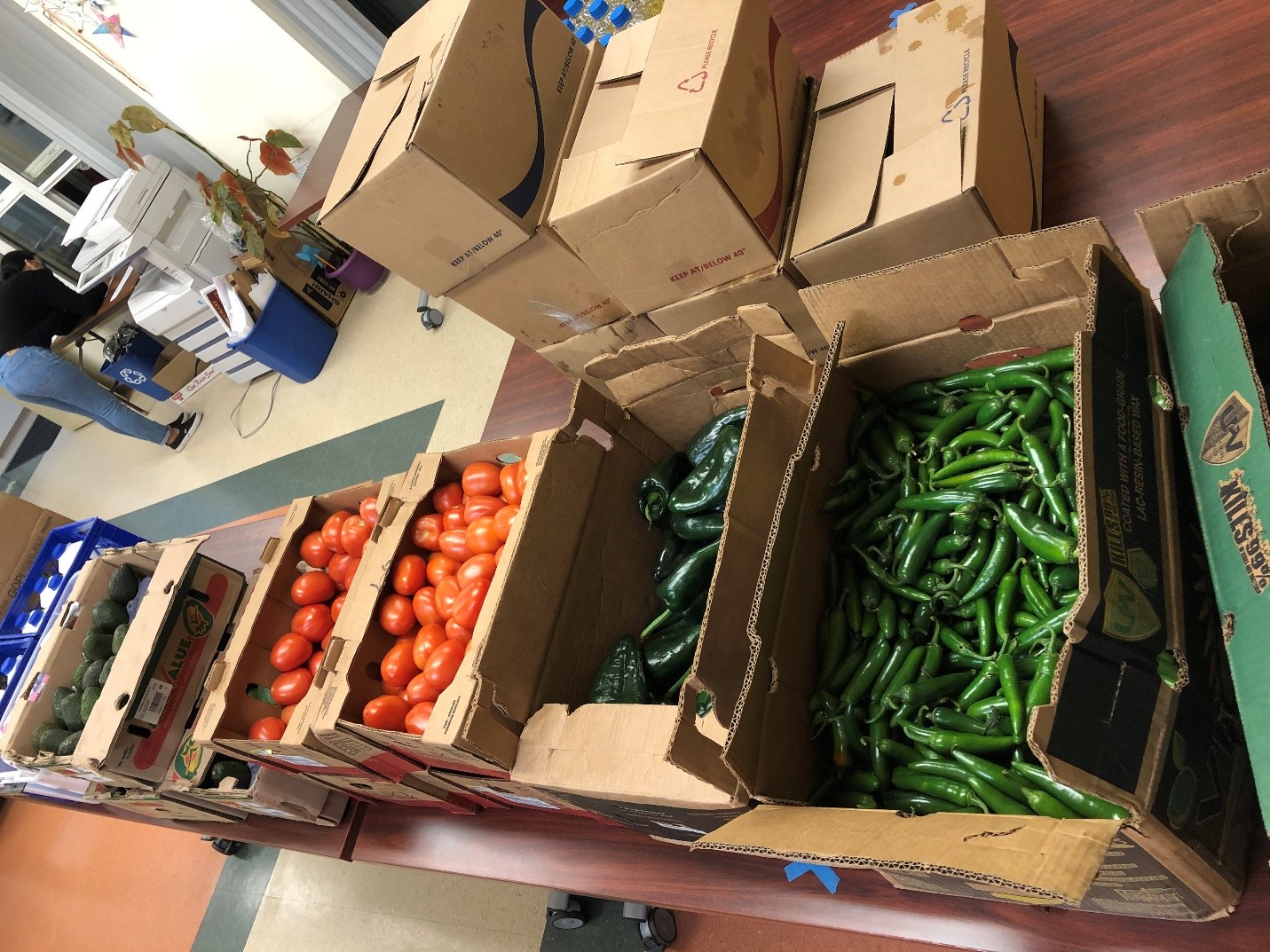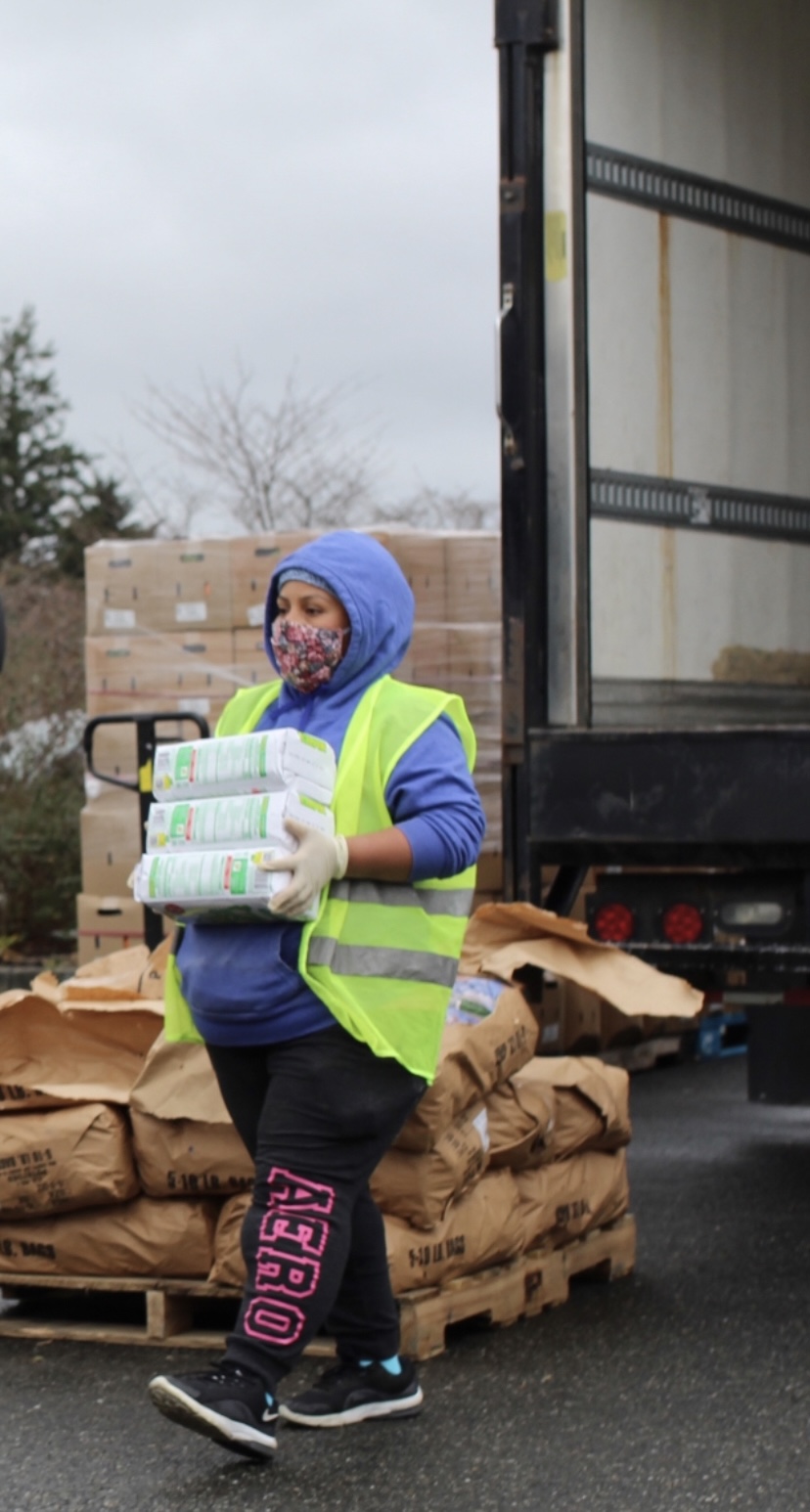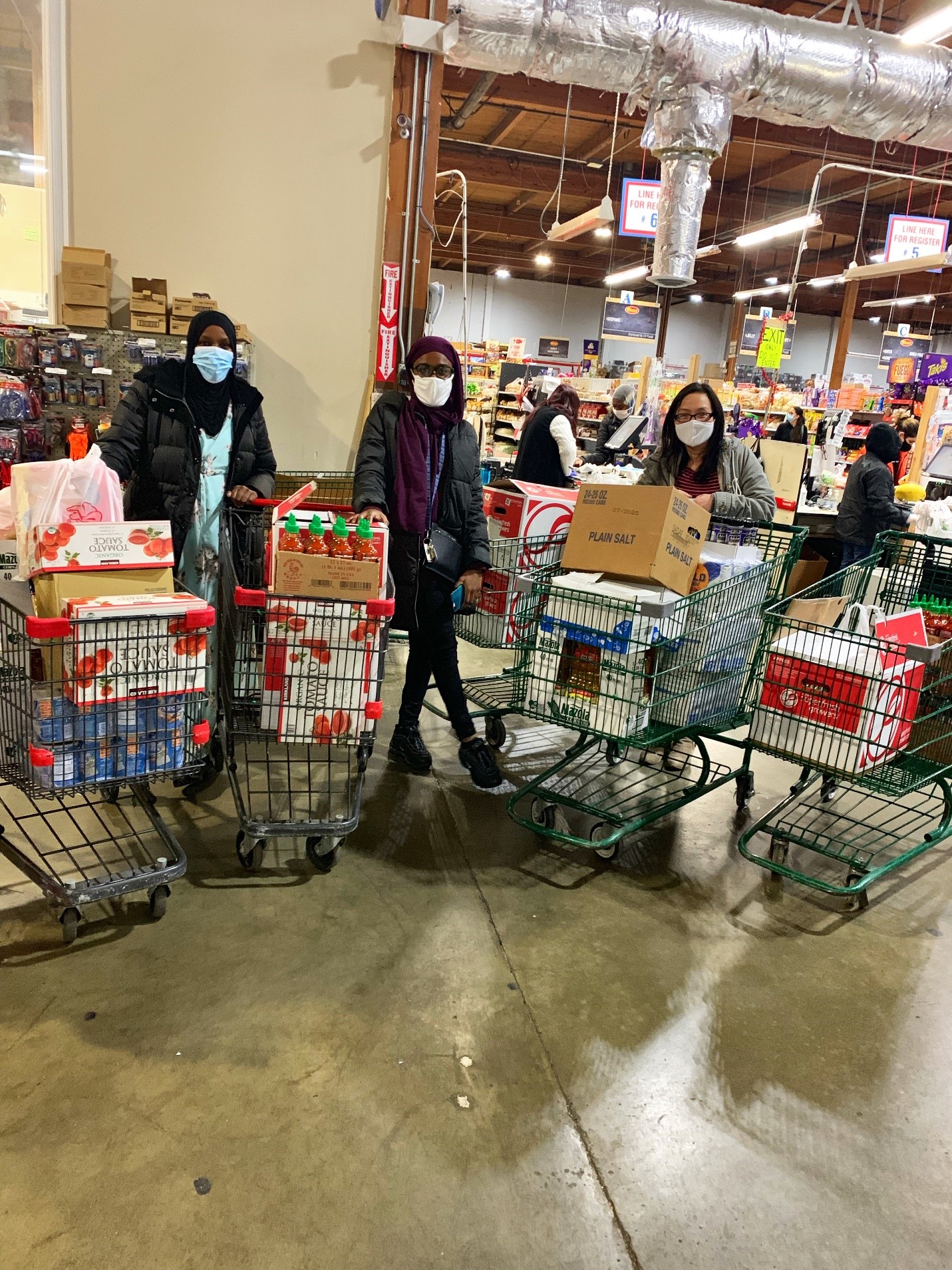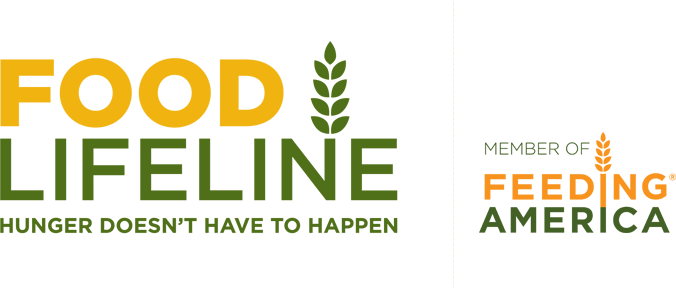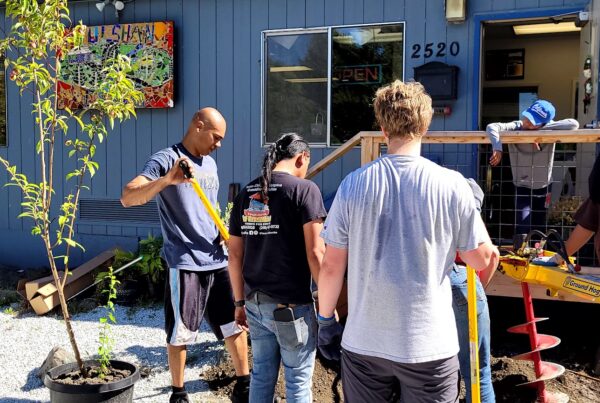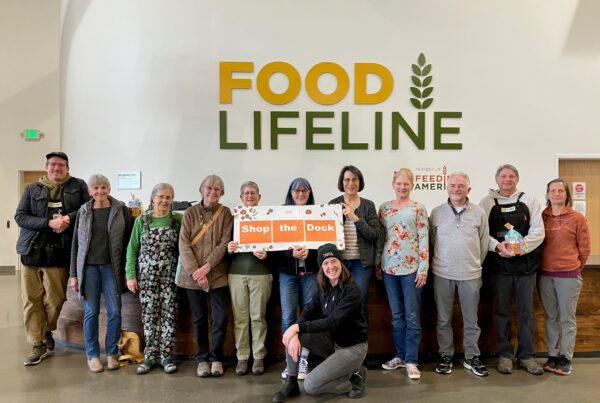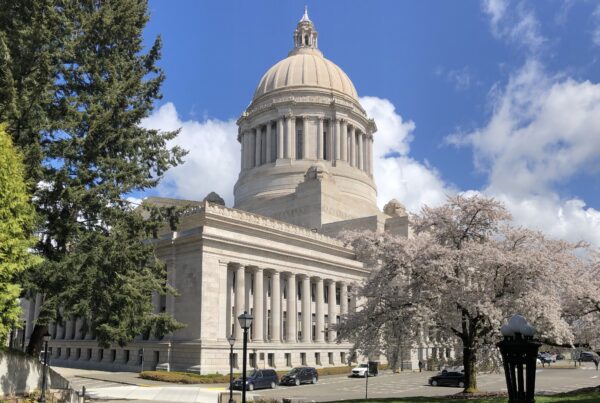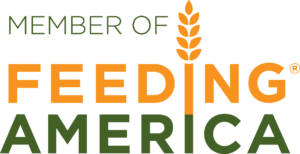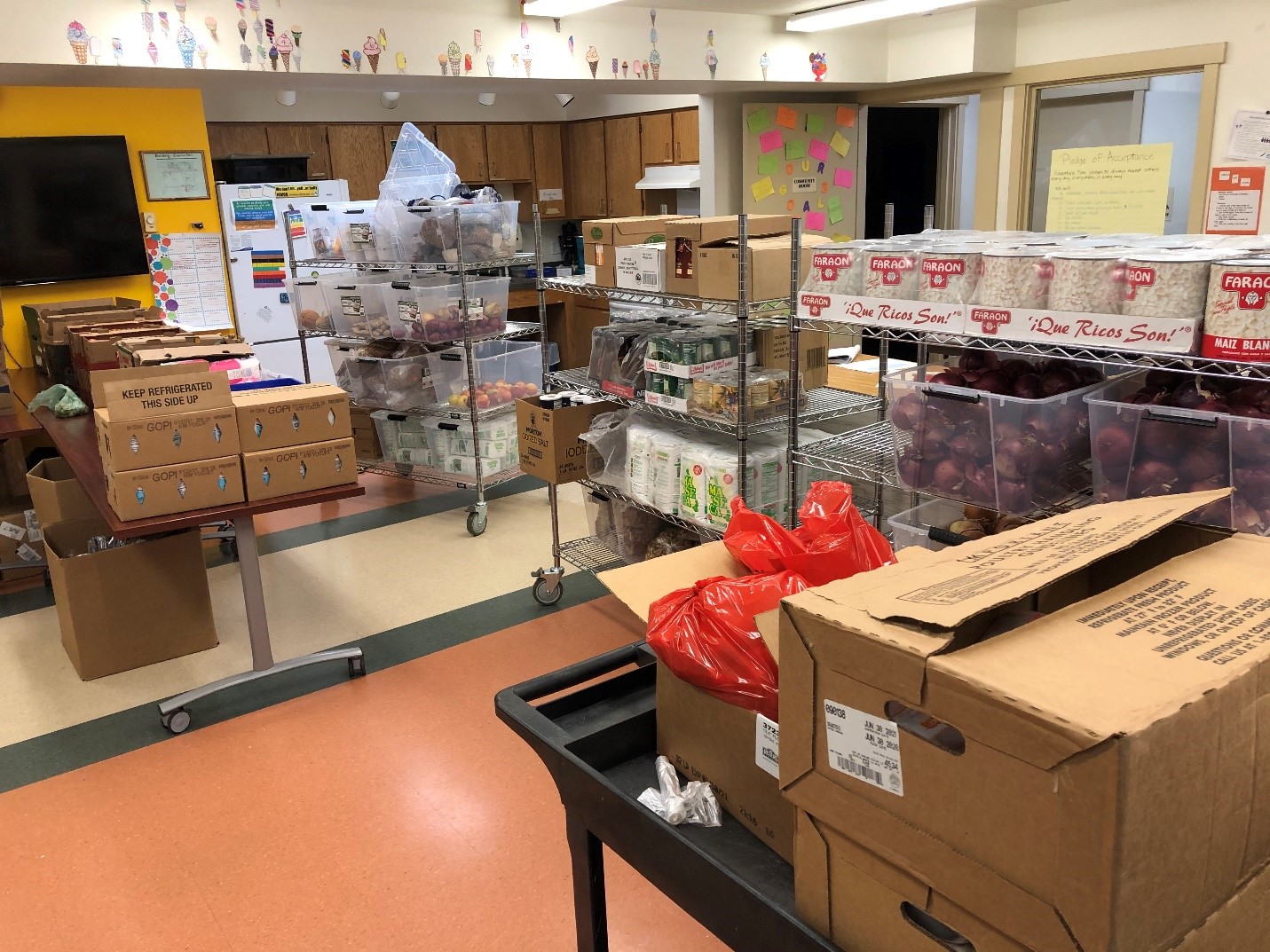
As a member of Feeding America’s national network of food banks, Food Lifeline applied and was awarded a generous amount from the Feeding America Covid-19 Relief Phase 3 Grant. We are using the grant to increase access to nutritious and culturally appropriate food for tribal communities, farmworkers, and immigrant and refugee communities experiencing food insecurity. Current grant partners include Bellingham Food Bank, Lummi Nation Food Bank, Mercy Housing Northwest, and Tri-Parish Food Bank.
The Covid-19 Relief Grant expands the capacity and sustainability of existing partnerships and programs currently supporting farmworkers and indigenous people in two high-need counties of our service area (Whatcom and Skagit). Additionally, we are also working to improve and expand our Covid-19 response emergency mobile food distributions by increasing access to more culturally appropriate foods. Ultimately, this work will inform how Food Lifeline will expand our capacity to provide more culturally relevant food and equitable programming across our entire agency network.
We are now more than halfway through the 9-month Feeding America Covid-19 Phase 3 Relief Grant and we wanted to share a few highlights from the first half of the grant.
- We hired our first community-based staff position, a Food Access Specialist based in Skagit and Whatcom Counties. Eber Rivera works with local seasonal farmworker, immigrant, and refugee communities to understand how they are impacted by hunger.
- Bellingham Food Bank and Tri-Parish Food Bank are each purchasing a new refrigerated truck.
- Grant partners have purchased culturally appropriate foods for their communities.
The Covid-19 crisis has also dramatically reinforced what we already knew to be true: that food insecurity in Western Washington is stratified across racial lines. Despite only being 13% of the population, the Latinx population now makes up the majority of Covid-19 cases in Washington State. The landscape of food insecurity in Western Washington is rapidly shifting as the Covid-19 crisis continues to impact people’s livelihoods and we know that the jobs most vulnerable during the crisis are disproportionately held by people of color. For example, immigrant workers are overrepresented in industries with distressingly high rates of Covid-19 infection—particularly in agriculture.
To mediate and resolve this catastrophe will take a concerted joint effort across many stakeholders in our network. As such, Food Lifeline recognizes that all efforts to address food insecurity and poverty should also seek to dismantle racism and discrimination. For these reasons, and in alignment with Food Lifeline’s strategic plan and overlapping Diversity, Equity, and Inclusion goals, we are using this funding to increase access to nutritious and culturally appropriate food for immigrants, migrant farmworkers, and tribal communities in Western Washington.
